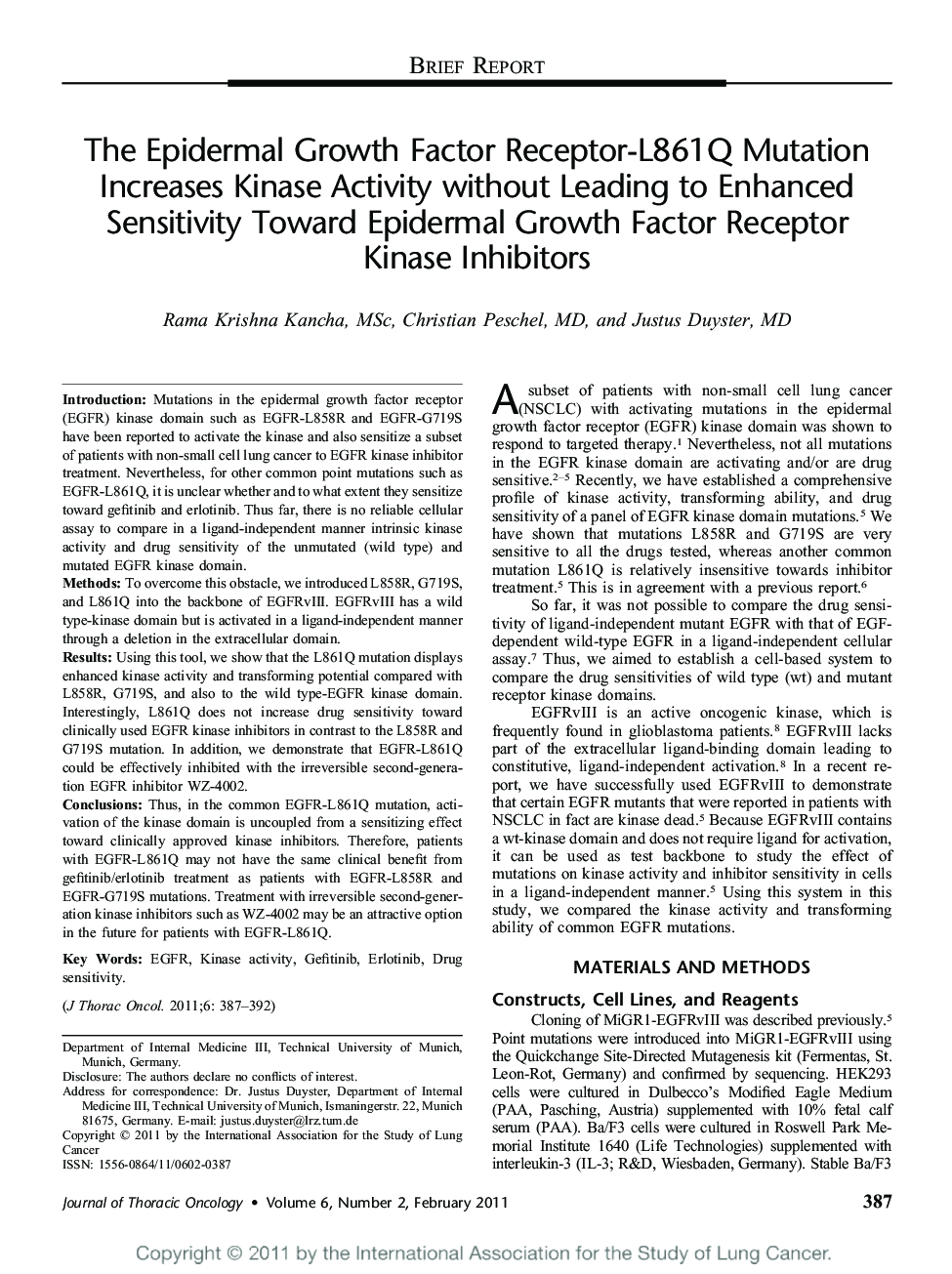| کد مقاله | کد نشریه | سال انتشار | مقاله انگلیسی | نسخه تمام متن |
|---|---|---|---|---|
| 3990053 | 1258721 | 2011 | 6 صفحه PDF | دانلود رایگان |

Introduction:Mutations in the epidermal growth factor receptor (EGFR) kinase domain such as EGFR-L858R and EGFR-G719S have been reported to activate the kinase and also sensitize a subset of patients with non-small cell lung cancer to EGFR kinase inhibitor treatment. Nevertheless, for other common point mutations such as EGFR-L861Q, it is unclear whether and to what extent they sensitize toward gefitinib and erlotinib. Thus far, there is no reliable cellular assay to compare in a ligand-independent manner intrinsic kinase activity and drug sensitivity of the unmutated (wild type) and mutated EGFR kinase domain.Methods:To overcome this obstacle, we introduced L858R, G719S, and L861Q into the backbone of EGFRvIII. EGFRvIII has a wild type-kinase domain but is activated in a ligand-independent manner through a deletion in the extracellular domain.Results:Using this tool, we show that the L861Q mutation displays enhanced kinase activity and transforming potential compared with L858R, G719S, and also to the wild type-EGFR kinase domain. Interestingly, L861Q does not increase drug sensitivity toward clinically used EGFR kinase inhibitors in contrast to the L858R and G719S mutation. In addition, we demonstrate that EGFR-L861Q could be effectively inhibited with the irreversible second-generation EGFR inhibitor WZ-4002.Conclusions:Thus, in the common EGFR-L861Q mutation, activation of the kinase domain is uncoupled from a sensitizing effect toward clinically approved kinase inhibitors. Therefore, patients with EGFR-L861Q may not have the same clinical benefit from gefitinib/erlotinib treatment as patients with EGFR-L858R and EGFR-G719S mutations. Treatment with irreversible second-generation kinase inhibitors such as WZ-4002 may be an attractive option in the future for patients with EGFR-L861Q.
Journal: Journal of Thoracic Oncology - Volume 6, Issue 2, February 2011, Pages 387–392